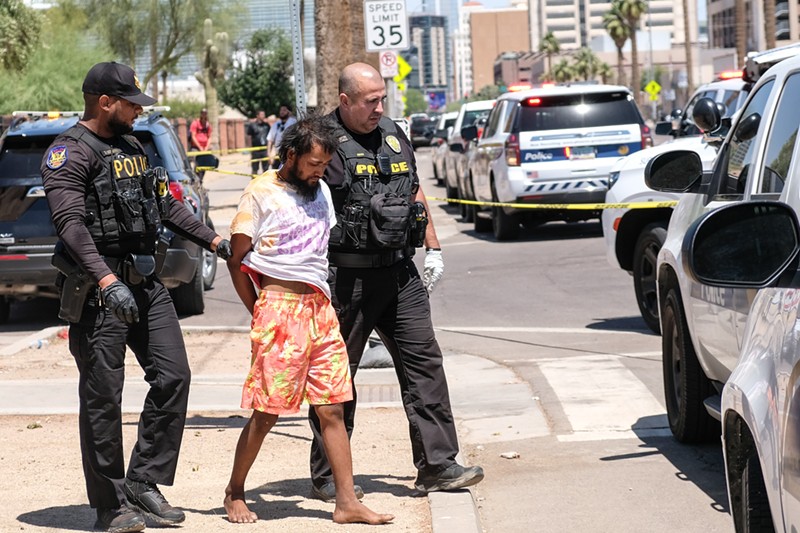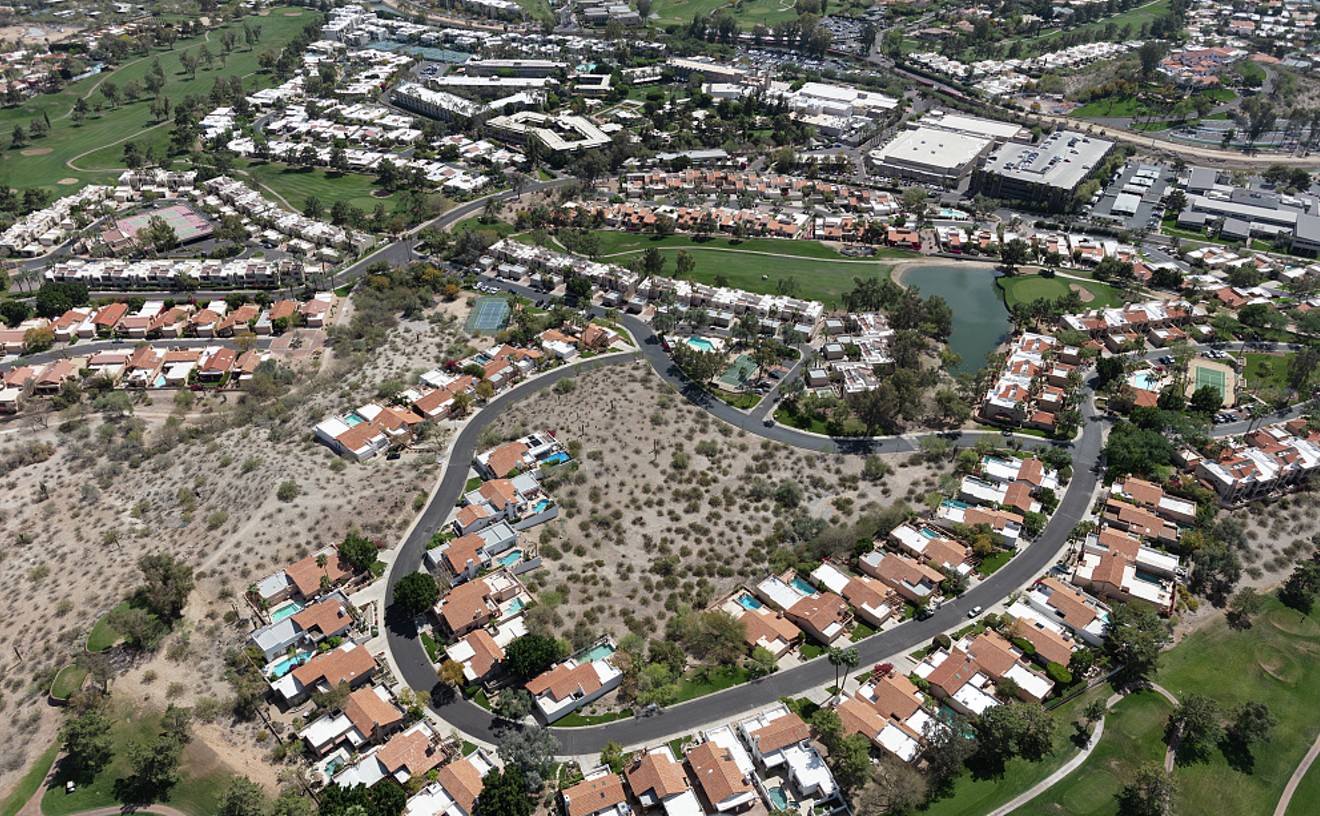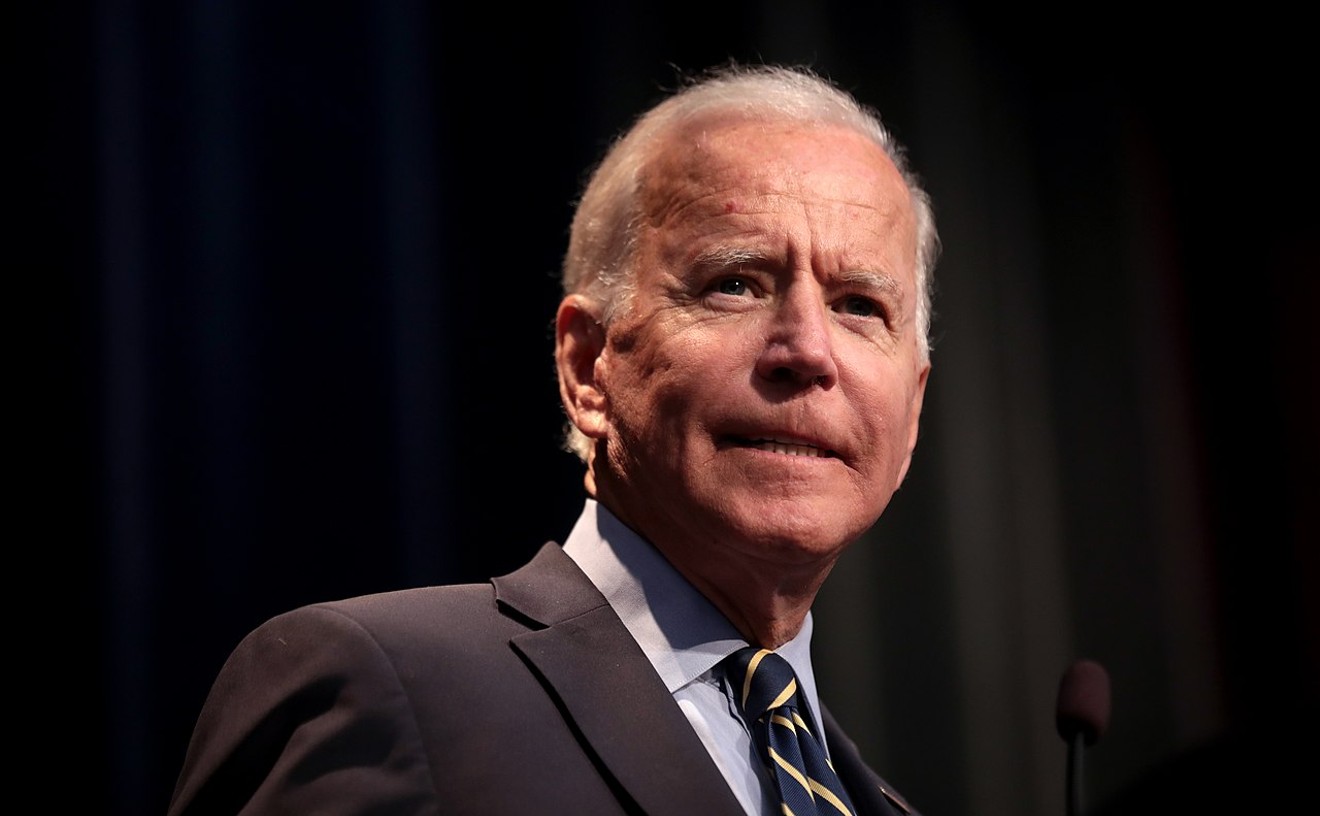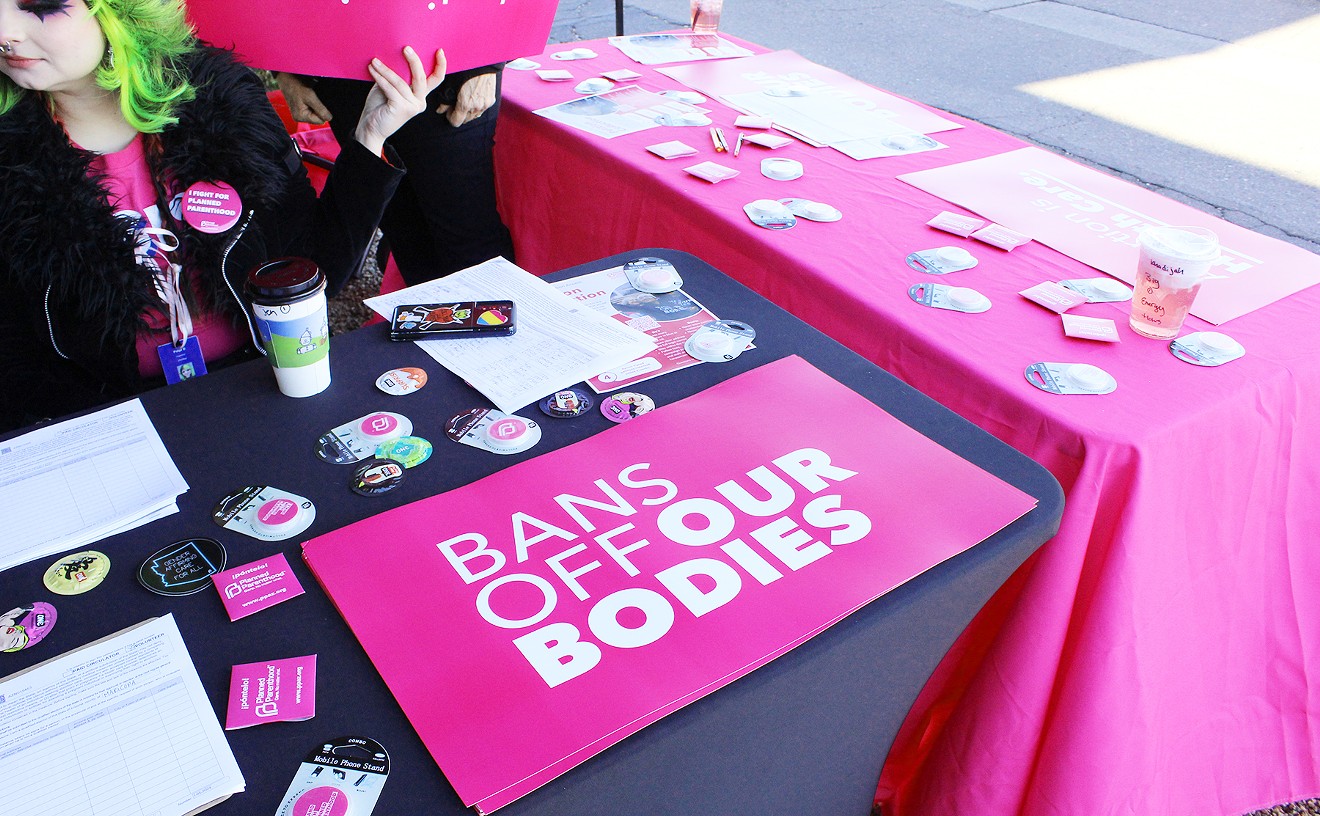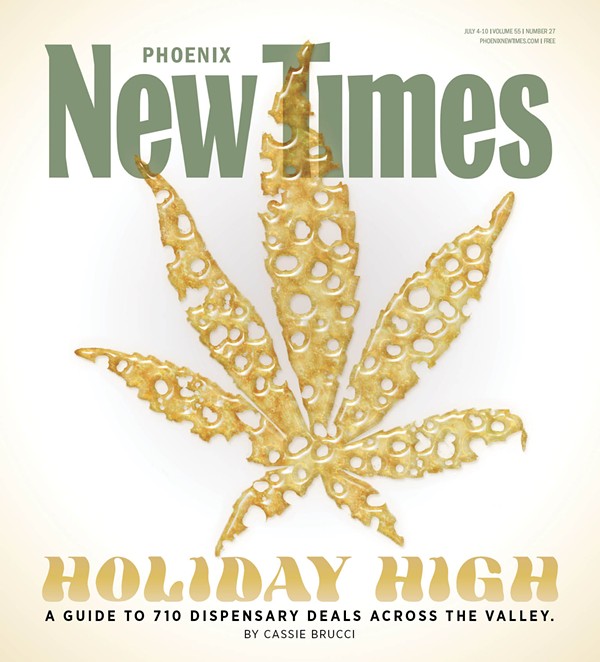Though a lower court previously ruled the law violated the Eighth Amendment, which bars cruel and unusual punishment, the highest court in the land has now deemed it legal to bar unhoused people from sleeping on public property even when they have nowhere else to go.
“Stay awake or be arrested,” as Justice Sonia Sotomayor wrote in a passionate dissent.
The decision could have a notable effect on Phoenix, whose estimated unhoused population was roughly 7,000 people in the latest count. Currently, Phoenix bans camping, otherwise known as living on the street, in city parks, buildings, facilities, parking lots and anything “adjacent.” Come Sept. 1, a new law approved by the Phoenix City Council will also ban camping within 500 feet of a school, child care facility or homeless shelter.
But while Grants Pass was pending, the city couldn’t legally enforce the bans, though they could arrest unhoused people for infractions such as obstruction of a public thoroughfare.
Now, though, the city has carte blanche to arrest unhoused people sleeping on public land. It’s unclear how aggressive Phoenix will be. In a statement Friday, Mayor Kate Gallego said the decision “provides the necessary clarity we need to help even more people find safe, stable shelter.” Her office did not respond to multiple new Phoenix New Times inquiries about exactly what “clarity” the ruling provided.
To be sure, the high court’s ruling doesn’t mandate camping bans. But it does give state and local governments the green light to make it illegal to be homeless, whether there’s anywhere for the unhoused to go or not. Advocates for the homeless harbor few illusions about which direction things will go.
“I knew it was coming,” said Elizabeth Venable, one of the foremost advocates for unhoused people in metro Phoenix.
Writing for the majority, Justice Neil Gorsuch kicked the issue of unhoused rights to states and cities to decide. His opinion cited the severity of the homelessness problem in several Western cities.
“Many cities across the American West face a homelessness crisis,” Gorsuch wrote. “The causes are varied and complex, the appropriate public policy responses perhaps no less so.”
Indeed, Phoenix has fought a largely losing battle against homelessness. Housing in Phoenix is unaffordable for a large portion of the population, and evictions continue to climb, reaching a record monthly high in January. As a result, the number of unhoused people in the Phoenix metro has risen sharply since 2018, jumping from about 6,300 to nearly 9,500 this year. More and more people are being swallowed up by the unforgiving currents of unaffordability and homelessness.
The city has increased shelter availability and expanded its summer cooling center resources, but it’s also battled the homeless just as much as homelessness. In September, a Maricopa County judge ordered the city to clear out the “public nuisance” that was the Zone, a large encampment of unhoused people near the Capitol. Around the same time, federal judge G. Murray Snow prohibited the city from enforcing its first camping ban when shelter was unavailable. The Grants Pass decision defangs part of that injunction.
The court’s ruling comes just after the U.S. Justice Department issued a landmark report last month that found Phoenix police regularly violated the civil rights of unhoused people from 2016 to 2022. While fewer than 1% of Phoenix residents are unhoused, 37% of those arrested for misdemeanors were unhoused. The DOJ also said many of those arrests were unconstitutional.
Now, some of those arrests will have constitutional cover.
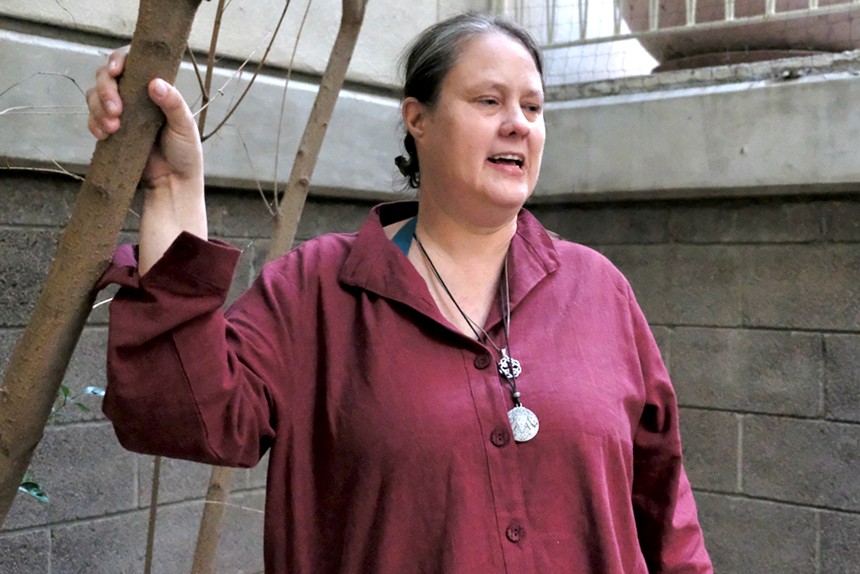
Elizabeth Venable, co-founder of Fund for Empowerment, lamented that there is no legal mechanism left to prevent Phoenix from arresting unhoused people for sleeping on the street.
Katya Schwenk
Advocates react
Theoretically, the Grants Pass decision gives cities and states one more tool to use to combat homelessness. But it’s a hammer, and advocates say that homelessness is anything but a nail.Arresting and citing the unhoused will not make them housed, said unhoused advocate Ben Jeffrey.
“Guess what, you still have a problem. Now you’re going to have an inclination to do the arresting to solve your problem,” Jeffrey said. “What the decision means is now the city is going to have to come up with some damn good comprehensive programming to get the people off the street.”
Phoenix officials say the city leads with services, pointing the unhoused toward shelters and addiction treatment resources, but advocates say that’s hardly the full truth. The DOJ report found Phoenix police regularly and illegally destroyed the property of unhoused people — despite being enjoined from doing so by Snow’s ruling last fall.
Even as the city council talked about pointing the unhoused toward services before jail — in the wake of passing the most recent camping bans — a police commander could be heard making a Freudian slip about how police would get around Snow’s injunction.
New Times asked Kristin Couturier, a city of Phoenix senior public information officer, for the total number of shelter spaces funded by the city. She has not provided an answer. That's one reason Jared Keenan, the legal director for the Arizona chapter of the American Civil Liberties Union, doesn’t buy the city’s commitment to “leading with services.”
“There’s not enough services for the number of people who need them in the city of Phoenix,” Keenan told New Times. “When you’re seeing numbers like over a third of all misdemeanor citations in the city are going to people who are unhoused, like, that’s pretty strong evidence they’re not leading with services.”
Homeless advocates aren’t without constitutional options. The Grants Pass ruling doesn’t guarantee the city and its police force won’t be challenged on their conduct, the nature of which still matters quite a bit, by watchdogs and advocates. Grants Pass didn’t limit the unhoused’s Fourth Amendment protections against illegal search and seizure. But it did make clear that it is totally fine to criminalize being homeless and needing to sleep.
That gives advocates one less constitutional cudgel to force cities to respect the rights of the unhoused and leaves them looking for other avenues to make change. The best remaining option is public pressure.
“There’s no mechanism other than public action to compel (the city) to do the right thing,” Venable said.
Whether Phoenix will do the right thing remains to be seen. The libertarian think tank Goldwater Institute cheered the decision as a win for cities to “clean up” homelessness, though “clean up” in this case would seem to mean sweeping it under the carpet. Meanwhile, Democratic state Senator and Phoenix City Council candidate Anna Hernandez blamed Republicans “who have consistently preached that our worst enemy is our struggling neighbors and not billionaires and corporations that do not pay their fair share in our country.”
Whatever the cause, the decision is a gut-wrenching blow to those who labor in hopes that Americans and American institutions will someday acknowledge the humanity of unhoused people.
Venable lamented that the U.S. Constitution doesn’t actually guarantee many freedoms, especially to the poor. Although President Franklin D. Roosevelt tried to establish a “Second Bill of Rights” that would have given working and poor Americans greater economic security that citizens of many European nations now enjoy, it never happened.
“We think we have these freedoms — and we expect freedoms ’cause we’re American,” Venable said. “In truth, a lot of these freedoms don’t exist in the United States of America right now.”

